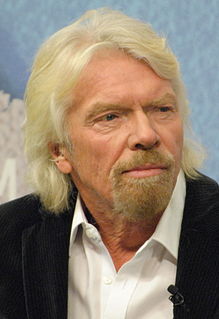A Quote by Grant Shapps
Businesses, not benefits, are the true ladder of social mobility.
Quote Topics
Related Quotes
It is worthwhile to engage in something that is close to one's heart. I had a scholarship. So if I donate money to give brilliant Chinese students an opportunity to study abroad, then this embodies everything I believe in: education, globalization, social mobility. I am an example of social mobility.
We want to encourage investors to target businesses that focus on achieving more than just profits - by placing their money into businesses that also positively contribute to social or environmental benefits in Ontario. Angel investors can help social enterprises grow and succeed, and through our partnership with the Network of Angel Organizations and the Impact Angel Alliance, we are making it easier for social ventures and angel investors to connect, contribute, and make our society a better place to live.
We need a sustainable system of student finance that promotes opportunity, encourages aspiration, increases social mobility and is governed by fairness. But all the Tories can offer is unsustainable, mounting debt, punishing students for wanting an education. And discouraging thousands of young people from climbing the ladder to a better life.
My concentration span is truly that of a gnat. Some people have this ladder, and that's all there is - the ladder. I have the ladder, too, but there's a building around it with scaffolding, and lots of windows for me to peek into. Then suddenly I'll remember, 'Oh, there's the ladder. I should be concentrating on that.'
Social mobility has always been a slippery term, with nebulous markers of success: how many state school children have to achieve postgraduate degrees, or fill higher professional jobs, before society is deemed to have achieved the requisite degree of mobility to consider prejudice or injustice a thing of the past?
Business is the most powerful force in society. It has the highest potential for solving social problems. Once consumers saw examples of prosperous companies integrating social concerns into their business practices, they were emboldened to demand the same of other businesses. Businesses could no longer say it was impossible.


































